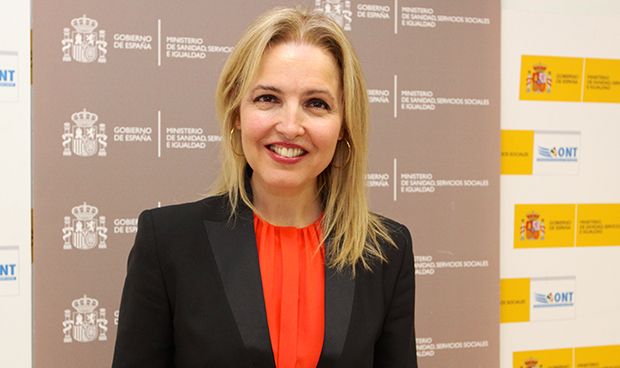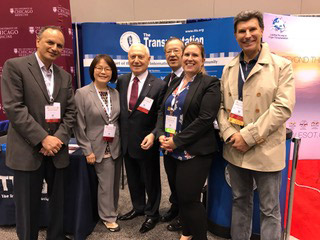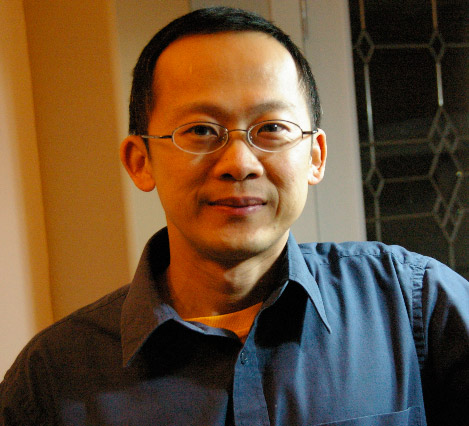
Spain - Beatriz Domínguez-Gil to lead ONT

Beatriz Domínguez-Gil (TTS Councilor) was named as the new Executive Director of the National Transplant Organization (ONT) succeeding Dr. Rafael Matesanz who leaves the institution after 28 years.
Thank you for visiting US at ATC

(pictured from left to right) Medhat Askar (Councilor), Curie Ahn, Mehmet Haberal (President-Elect), Kenji Yuzawa, Amanda Mayer, Marcelo Cantarovich (Vice President).
TTS exhibited at the recent American Transplant Congress where our Membership Coordinator, Amanda Mayer, had the opportunity to network with TTS members attending the meeting as well as adding new ones. The highlight of the week was a meet and greet at the booth hosted by the TTS 2018 SPC Chair and TTS Immediate Past=President, Philip J. O'Connell.

Role of the HLA Laboratory in Transplantation
The role of histocompatibility and immunogenetics laboratory is becoming increasingly important to the success of transplantation, said Dr. Howard Gebel who presented at the TTS Advanced Renal Transplantation Education Series. With 40 years of experience in the field of histocompatibility under his belt, Dr. Gebel reminded the audience that the very monumental fact founded in 1969, that strong donor specific antibodies that result in positive complement-dependent cytotoxicity test is contraindication to prospective transplant. If an organ is transplanted across such positive crossmatch it is destined to fail with hyperacute or accelerated acute rejection (Terasaki et Patel, NEJM 1969), a fact that still stands strong today. As laboratory techniques advance, so does the imperfectness of technologies come along. The sub optimal sensitivity in the antibody assay which causes false negativity, the issue of denatured antigens which cause false positivity, and the antigen panel composition unmatched with the local population frequency are among the various issues a histocompatibility laboratory faces. Transplanters working with laboratory are urged to understand the various shortfalls of the current technologies and are advised to seek consultation with HLA specialist where necessary in the interpretation of compatibility in the pre-transplant setting as well as the study of donor specific antibody monitoring after transplantation.
Practicing unique repertoire of histocompatibility testings out from the Emory University Hospital, Dr. Gebel has nicely presented the utility of solid-phase multiplex bead assays in conjunction with the phenotype of donor in his prediction of transplantability index of a patient by virtual crossmatch. He also attributed the excellent patient outcome in his program to this algorithm irrespective whether the patients are highly sensitized or not.
I encourage the readers of Tribune Pulse to view the recorded video for further information. For those who have attended the education session will sure learn new ideas that are worth revisit.
WATCH THE VIDEO (REQUIRES LOGIN)
Recommended Reading:
HLA antibody detection with solid phase assays: great expectations or expectations too great?
Gebel HM, Bray RA.
Am J Transplant. 2014 Sep;14(9):1964-75
Review related to the presentation of Dr. Gebel
Evolution and clinical pathologic correlations of de novo donor-specific HLA antibody post kidney transplant.
Wiebe C1, Gibson IW, Blydt-Hansen TD, Karpinski M, Ho J, Storsley LJ, Goldberg A, Birk PE, Rush DN, Nickerson PW.
Am J Transplant. 2012 May;12(5):1157-67. doi: 10.1111/j.1600-6143.2012.04013.x. Epub 2012 Mar 19.
Renal transplant outcomes in patient with the presence of de novo donor-specific HLA antibodies compared to those without were well described in this comprehensive study.
The Banff 2015 Kidney Meeting Report: Current Challenges in Rejection Classification and Prospects for Adopting Molecular Pathology.
Loupy A, Haas M, Solez K, Racusen L, Glotz D, Seron D, Nankivell BJ, Colvin RB, Afrouzian M, Akalin E, Alachkar N, Bagnasco S, Becker JU, Cornell L, Drachenberg C, Dragun D, de Kort H, Gibson IW, Kraus ES, Lefaucheur C, Legendre C, Liapis H, Muthukumar T, Nickeleit V, Orandi B, Park W, Rabant M, Randhawa P, Reed EF, Roufosse C, Seshan SV, Sis B, Singh HK, Schinstock C, Tambur A, Zeevi A, Mengel M.
Am J Transplant. 2017 Jan;17(1):28-41. doi: 10.1111/ajt.14107.
Latest renal allograft diagnosis guidelines highlight the importance of donor specific HLA antibodies in particular for the diagnosis of clinical and subclinical antibody mediated rejection.
The role of donor-specific HLA alloantibodies in liver transplantation.
O'Leary JG, Demetris AJ, Friedman LS, Gebel HM, Halloran PF, Kirk AD, Knechtle SJ, McDiarmid SV, Shaked A, Terasaki PI, Tinckam KJ, Tomlanovich SJ, Wood KJ, Woodle ES, Zachary AA, Klintmalm GB.
Am J Transplant. 2014 Apr;14(4):779-87. doi: 10.1111/ajt.12667. Epub 2014 Mar 1.
Evidence of HLA’s role in liver transplantation. This article summarizes opinions and experiences of experts in liver transplantation from HLA’s perspective.
Antibody-mediated rejection of the lung: A consensus report of the International Society for Heart and Lung Transplantation.
Levine DJ, Glanville AR, Aboyoun C, Belperio J, Benden C, Berry GJ, Hachem R, Hayes D Jr, Neil D, Reinsmoen NL, Snyder LD, Sweet S, Tyan D, Verleden G, Westall G, Yusen RD, Zamora M, Zeevi A.
J Heart Lung Transplant. 2016 Apr;35(4):397-406. doi: 10.1016/j.healun.2016.01.1223. Epub 2016 Feb 10. Review.
The relevance of HLA antibody in heart and lung transplantation, updated comprehensive review.
Complement-binding anti-HLA antibodies and kidney-allograft survival.
Loupy A, Lefaucheur C, Vernerey D, Prugger C, Duong van Huyen JP, Mooney N, Suberbielle C, Frémeaux-Bacchi V, Méjean A, Desgrandchamps F, Anglicheau D, Nochy D, Charron D, Empana JP, Delahousse M, Legendre C, Glotz D, Hill GS, Zeevi A, Jouven X.
N Engl J Med. 2013 Sep 26;369(13):1215-26. doi: 10.1056/NEJMoa1302506.
HLA antibodies with complement binding capability have stronger impact on kidney allograft survival than those non-complement binding HLA antibodies.
Consensus guidelines on the testing and clinical management issues associated with HLA and non-HLA antibodies in transplantation.
Tait BD1, Süsal C, Gebel HM, Nickerson PW, Zachary AA, Claas FH, Reed EF, Bray RA, Campbell P, Chapman JR, Coates PT, Colvin RB, Cozzi E, Doxiadis II, Fuggle SV, Gill J, Glotz D, Lachmann N, Mohanakumar T, Suciu-Foca N, Sumitran-Holgersson S, Tanabe K, Taylor CJ, Tyan DB, Webster A, Zeevi A, Opelz G.
Transplantation. 2013 Jan 15;95(1):19-47. doi: 10.1097/TP.0b013e31827a19cc.
Comprehensive list of recommendations ranging from technical applications of HLA and non-HLA antibodies testing, to pre-transplantation consideration to posttransplantation monitoring. Essential knowledge base for all level of practitioners.
Non-HLA antibodies in solid organ transplantation: recent concepts and clinical relevance.
Dragun D, Catar R, Philippe A.
Curr Opin Organ Transplant. 2013 Aug;18(4):430-5. doi: 10.1097/MOT.0b013e3283636e55. Review
Anti-Angiotensin II Type 1 Receptor and Anti-Endothelial Cell Antibodies: A Cross-Sectional Analysis of Pathological Findings in Allograft Biopsies.
Philogene MC, Bagnasco S, Kraus ES, Montgomery RA, Dragun D, Leffell MS, Zachary AA, Jackson AM.
Transplantation. 2017 Mar;101(3):608-615. doi: 10.1097/TP.0000000000001231.
Two articles acknowledge the importance of non-HLA antibodies namely AT1R antibody and AECA that have emerged as relevant in allograft survival.
HLA Videos of interest in TTS Educational Library (requires login)
26th International Congress of The Transplantation Society
- Clinical Relevance of HLA Epitopes - Where Do We Stand? Chris Wiebe
https://www.tts.org/component/tts/?view=presentation&id=181626 - C1q/C3d Single Antigen Bead Assay Only Detects High Titer/Avidity Class-I anti-HLA Antibodies Detected by Single Antigen Beads - Manish Gandhi
https://www.tts.org/component/tts/?view=presentation&id=182120
2015 – IPTA
- HLA Antibody screening in Kidney Transplantation: Current Guidelines from TTS
Caner Susal
https://www.tts.org/component/tts/?view=presentation&id=17423
2014 - World Transplant Congress
- Detection of C3d-Binding Donor-Specific Anti-HLA Antibodies at Diagnosis of Humoral Rejection Predicts Renal Graft Loss – Antoine Sicard
https://www.tts.org/component/tts/?view=presentation&id=17373 - Role of Non-HLA Antibody in Graft Injury – Duska Dragun
https://www.tts.org/component/tts/?view=presentation&id=12291
2012 - TTS International Congress
- Development of Immune Responses to Donor HLA and Kidney Associated Self-Antigens, Fibronectin and Collagen IV (Autoimmunity) Are Significantly Associated with Transplant Glomerulopathy Following Human Kidney Transplantation – Thalachallour Mohanakumar
https://www.tts.org/component/tts/?view=presentation&id=12077 - Occurrence of Non-HLA Antibodies Against MICA, AT1R and ETAR after Heart Transplantation Is Associated with Cardiac Allograft Vasculopathy – Markus Barten
https://www.tts.org/component/tts/?view=presentation&id=12077
ABOUT OUR GUEST EDITOR
 Professor Dr. Chee Loong Saw
Professor Dr. Chee Loong Saw
Our Guest Editor, Dr. Saw trained with Dr. Gebel and Dr. Bray at the Emory University Hospital during his fellowship. He is currently HLA Lab Director for the McGill University Health Centre, Quebec Canada, overseeing transplant immunology testing for kidney, pancreas, heart, liver and islet cell transplantation. With experience from the Emory, Dr. Saw has taken his lab to join and contribute to the Canadian National Kidney Paired Exchange and Highly Sensitized Patient programs among other advanced practices, establishing his patient survival and graft survival of 90% at 5 year based on standard criteria donation. It has been demonstrated that the importance of HLA should be emphasized in the setting of transplantation so that satisfactory clinical outcome can be ensured. Dr. Saw is Assistant Professor at the Department of Medicine and member of FOCiS Centre of Excellence in Translational Immunology, McGill University-Research Institute, affiliated member of iGeneTRAiN Consortium, ASHI's ARB's Inspector, PT Committee Member, and Abstract Reviewer, as well as consultant to international labs. Pakist
Transplantation Journal Featured Article
Submitted by: Dr Karen Keung, Editorial Fellow, Transplantation.
Sigdel TK, Bestard O, Salomonis N, et al. Intragraft Antiviral-Specific Gene Expression as a Distinctive Transcriptional Signature for Studies in Polyomavirus-Associated Nephropathy. Transplantation. 2016 ;100(10):2062-70.
This study aimed to identify a set of polyomavirus nephropathy (PVAN)-specific genes from renal allograft biopsies. Gene expression assays of 168 unique paediatric and adolescent allograft biopsies (including 10 with PVAN, 26 with T cell mediated rejection and 59 with IF/TA) were performed. PVAN- specific transcripts were primarily related to DNA replication process, RNA polymerase assembly, and pathogen recognition receptors. The authors concluded that these transcripts can distinguish PVAN from other pathologies such as acute rejection, and may serve as potential targets for novel therapeutics.
2017 International Summer School on Immunogenetics
The 2017 International Summer School meeting, hosted and organized by EFI (European Federation for Immunogenetics) with support from ASHI (American Society for Histocompatibility & Immunogenetics) and APHIA (Asia-Pacific Histocompatibility and Immunogenetics Association), will be held in Trinity College in the heart of the city of Dublin, Ireland, 24th-26th July.
Read More
SURVEY - BANFF HIGHLY SENSITIZED WORKING GROUP
As you know, a major unmet need in kidney transplantation is an effective treatment for antibody mediated rejection. To advance this field and develop effective treatment, it is important to have consistent definitions and interpretation of renal allograft histopathology findings with the eventual goal of optimizing the management of renal allograft recipient. To ultimately develop a consensus for clinical diagnosis and therapeutic interventions, we believe that it is extremely important to understand how the interpretation and management currently differ among physicians for the same clinical scenario.
This survey is designed to understand the current practice patterns for the management of antibody mediated injury of the renal allograft. Please answer the following questions based upon your current practice patterns. We want to emphasize that there are no right or wrong answers for these cases.
Please use the link below to complete the survey.
CLICK HERE TO TAKE THE SURVEY
IN THE NEWS
Study finds low rate of cancer screening among transplant patients
May 9 - People who have received organ transplants are at higher risk of developing and dying of cancer than the general population. Yet their rates of cancer screening do not meet existing guidelines, a new study has found.
Read More
Ireland to join other EU countries in enforcing 'opt-out' organ donation system
May 9 - Health Minister Simon Harris has proposed a new bill to establish an "opt-out" organ donation system in Ireland. The Human Tissue Bill will put in place a system of “presumed consent” for organ donation to replace the current system that requires people to opt in if they wish to make their organs available for transplantation following their death.
Read More
Low-cost kidney care - Bangladesh
May 7 - Gonoshasthaya Dialysis Centre (GDC) is going to begin its operation in a week, promising low-cost healthcare to the kidney patients struggling to access services for high cost.
Read More
India’s first womb transplants: 2 moms to donate uteri, help daughters conceive
May 10 - Doctors at a Pune hospital will conduct India’s first womb transplantation next week when they will transfer two uteri from healthy donors to two recipients, who are unable to bear children.
Read More
Artificially Produced Cells Could Boost Lung Disease Research, Study Says
May 5 - Cells can be artificially produced that have many features of those found in human lung cells, researchers report. To do this, they identified the genetic program that regulates the formation and growth of lungs. The research potentially can contribute to advances in the study of lung diseases such as cystic fibrosis, respiratory distress syndrome, congenital lung disease and pulmonary fibrosis.
Read More
Acid exposure predicts pulmonary decline after lung transplant
May 6 - CHICAGO — Increased acid exposure time on reflux testing before lung transplantation predicts decline in pulmonary function after transplantation, according to research presented at Digestive Disease Week.
Read More
Snapshots of Life: Biological Bubble Machine
NIH Director's Blog – As kids, most of us got a bang out of blowing soap bubbles and watching them float around. Biologists have learned that some of our cells do that too. During this blebbing process, a cell’s membrane temporarily disassociates from its underlying cytoskeleton, forming a tiny pouch that, over the course of about 30 minutes, is “inflated” with a mix of proteins and lipids from inside the cell. After the PMVs are fully filled, these bubble-like structures are pinched off and released, like those that you see in the background. Certain cells constantly release PMVs, along with other types of vesicles, and may use those to communicate with other cells throughout the body.
READ MORE
Stem Cell Trial Data Mostly Go Unpublished
May 5 - Less than half of completed stem cell studies in humans are published in peer-reviewed journals, according to an analysis of regenerative medicine trials.
Read More
Contact
Address
The Transplantation Society
International Headquarters
740 Notre-Dame Ouest
Suite 1245
Montréal, QC, H3C 3X6
Canada
Используйте Вавада казино для игры с бонусом — активируйте промокод и начните выигрывать уже сегодня!

